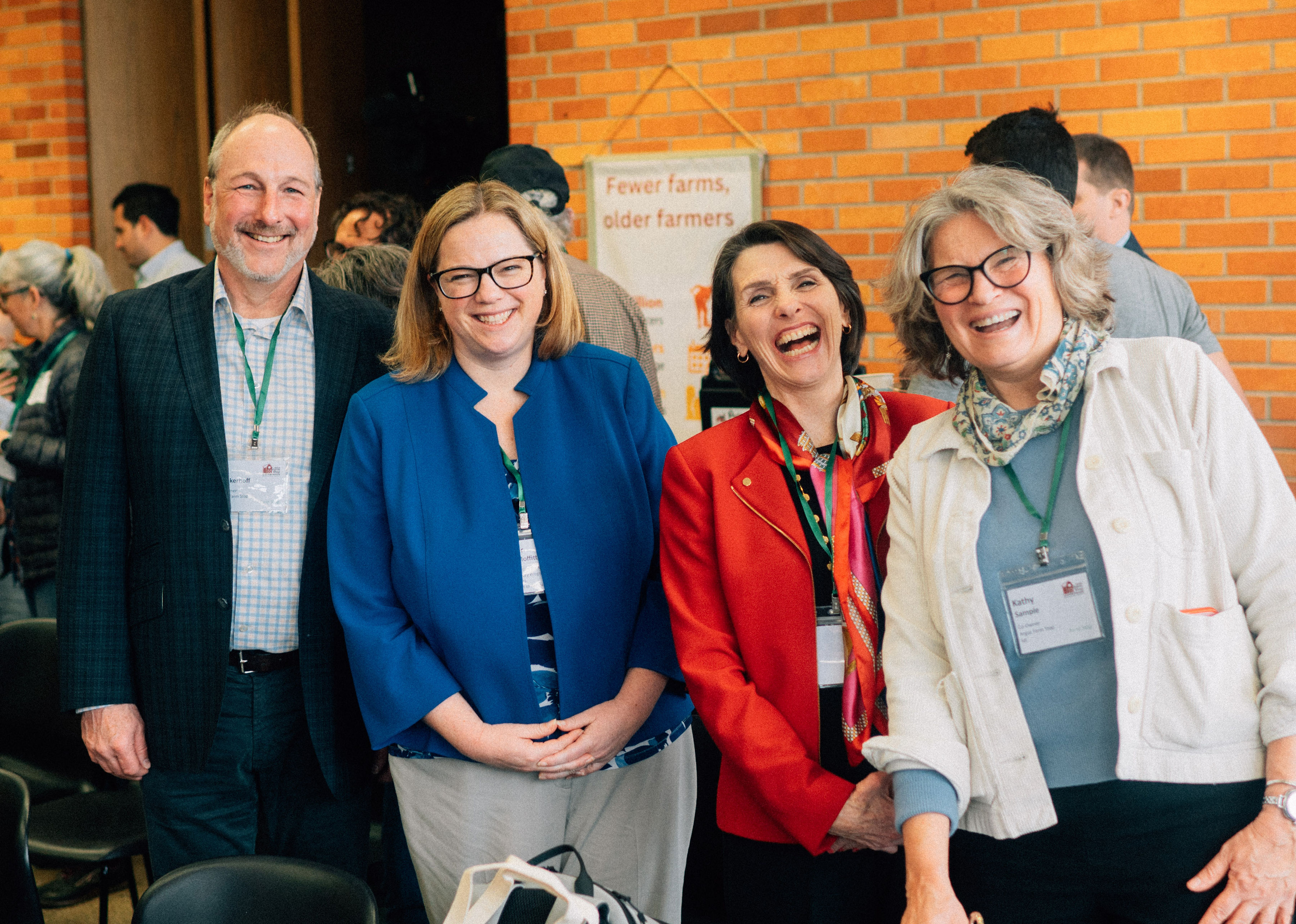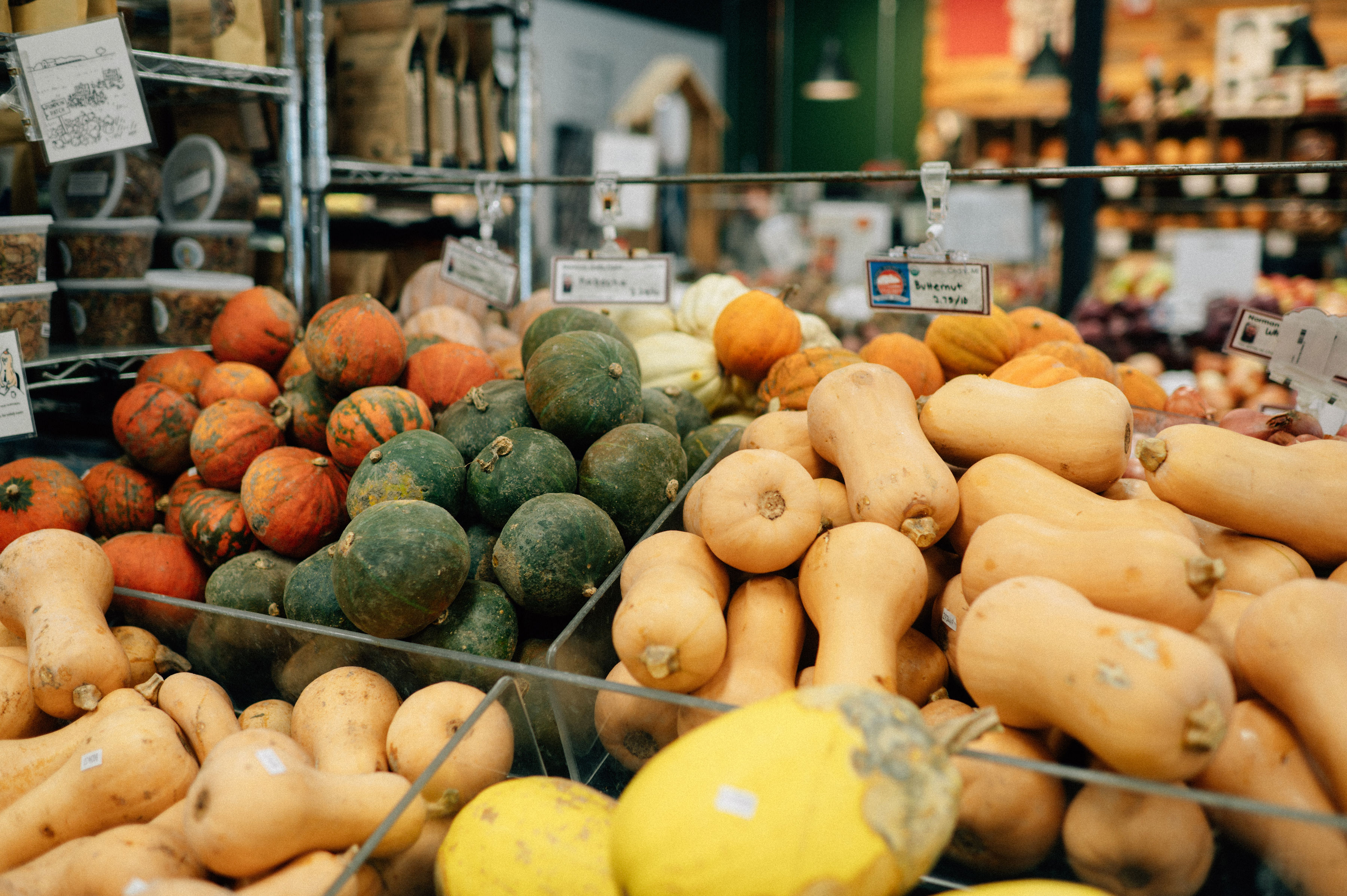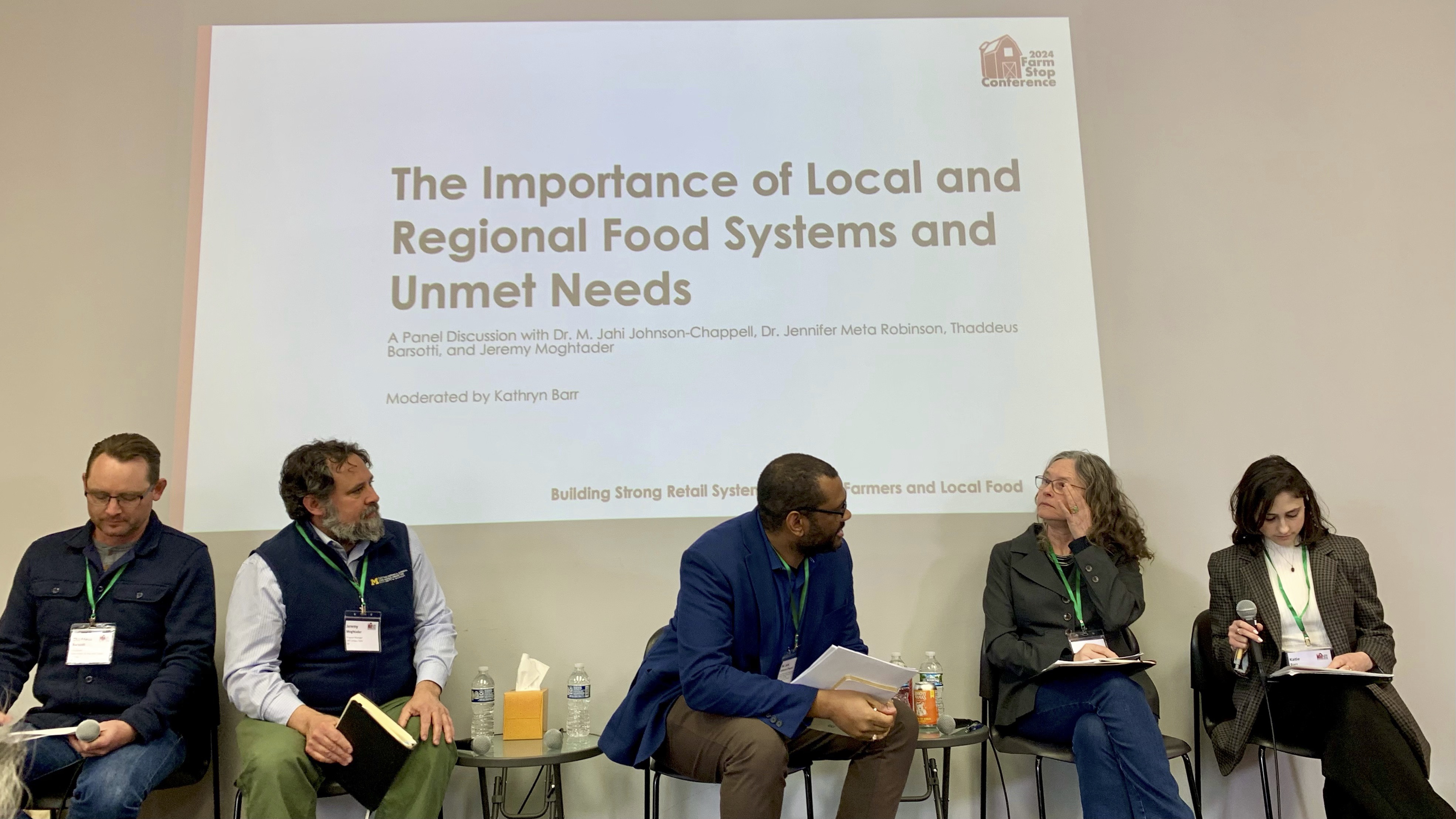2024 National Farm Stop Conference: Reimagining Retail for Local Farmers and Communities
The 2024 National Farm Stop Conference discussed methods of increasing sales revenues for producers, creating successful farm stops, and building strong local and regional food systems.

Argus Farm Stop of Ann Arbor, MI hosted the first National Farm Stop Conference on March 1-3, 2024 at the Matthaei Botanical Gardens in Ann Arbor. This three-day conference convened more than 130 attendees from across the country. With different tracks for attendees, speakers at the event discussed methods of increasing sales revenues for producers, creating successful farm stops, and the importance of local and regional food systems.
“If you combine a farmers market and a grocery store, you get farm stops,” Bill Brinkerhoff, co-founder of Argus Farm Stop, said. “We’re readjusting the share of the dollar back to farmers.”
Established in 2014, Argus describes itself as a year-round, everyday farmers market that now has three store fronts and sells from over 200 local producers. Founders Kathy Sample and Brinkerhoff were inspired to start Argus after visiting Local Roots Market & Cafe in Wooster, OH. Over the years, Sample and Brinkerhoff have hosted over 400 people through classes and events regarding the farm stop model. With growing momentum for this model, they took the initiative to organize the first national conference of its kind.
What is a farm stop?
According to Kathryn Barr, author of How to Start a Farm Stop, farm stops are "markets that support small-scale farmers and strengthen local and regional food systems.” Farm stops offer a retail-style market where consumers can buy local produce from farmers or producers, typically on the consignment model. This offers flexibility and a fair price to producers who can sell more products with less of the time commitment required to attend weekend farmers markets. Through this market channel, farmers also retain a higher percentage of profits compared to a conventional retail model. In the United States, there are over a dozen businesses like this that provide benefits for both the producer and the consumer.
“We do this to break the original paradigm — whatever people buy at Argus, the farmers are getting seventy percent,” Brinkerhoff said. “When farmers come in, they are treated like rockstars.”
Another hallmark of the farm stop model compared to retail is the dedication to customer education. At Argus Farm Stop, clear signage within the market showcases the farm name, location, and growing practices. Since farmers are paid for the products that get sold, it’s important for customers to know the name of their farmer when they approach the checkout. Additionally, the Argus Staff prioritizes ways to move products for farmers and to educate customers.
“It’s nice to teach someone how to use a rutabaga if they’re not used to cooking with that,” Mary Balog, RDN, Manager and Educator of Argus Farm Stop, said. In addition to hosting a market space for customers, Argus offers a weekly produce box that community members can subscribe to on a weekly or individual basis. Packed full of in-season produce, the boxes also contain sourcing information for the items as well as recipes, often prepared by Balog. Through a partnership with the Michigan Fitness Foundation, Argus also provides subsidized market boxes to those facing food insecurity in the community.

Building strong local and regional food systems
According to the 2022 Census of Agriculture, the average age of farmers exceeds 58 years, with about a third of those surveyed having farmed for less than 10 years. This demographic trend showcases the need for increased support for new and beginning farmers. Farm stops exemplify alternative retail forms that support sustainable and resilient food businesses.
"Michigan is the most agriculturally diverse state with a reliable access to water,” Tim Boring, Director of Michigan Department of Agriculture and Rural Development (MDARD), said. “Farm Stops are innovative, and they are growing farms in different ways.”
During the National Farm Stop Conference, policymakers underscored the importance of national and local food systems. Jennifer Lester Moffitt, USDA Undersecretary Agriculture for Marketing and Regulatory Programs, highlighted the USDA's commitment to investing in locally led solutions.
“We want to strengthen the vitality of family farms and how we are doing that is through a systems approach,” Moffitt said.
In May 2023, the USDA announced the creation of 12 new Regional Food Business Centers that will provide coordination, technical assistance, and capacity building to help small to mid-size food businesses access new markets and navigate available resources. Representatives from both the Appalachia Regional Food Business Center and the Great Lakes Midwest Regional Food Business Center attended this conference.
"We’re trying to provide the resources that are necessary for local food systems...we know, as has been mentioned by Director Boring and others, that local food systems provide a variety of values, not just profit and income,” M. Jahi Johnson-Chappell, PhD, Director of the Michigan State University Center for Regional Food Systems (CRFS), said. CRFS is the lead organization for the Great Lakes Midwest Regional Food Business Center which will provide technical and financial support to food and farm business entrepreneurs in Illinois, Indiana, Michigan, and Wisconsin, as well as to Indigenous communities. “We are trying to form the connections and the trust to really do this in a way where we're bringing these resources directly to communities."
Johnson-Chappell continued that CRFS and the key partners are committed to respecting and working with the existing community structures. In this first year, they are focused on building connections, consulting with committee members and compensating them for their time. “We’re doing this so that when we are giving out the $10 million in Business Builder awards and technical assistance awards, we're doing in a way that really builds communities — rather than disrupting any of them.”

Funding for farm stops and other food businesses
Looking ahead, the Regional Food Business Centers will provide funding opportunities to mid-tier food and farming businesses. While the USDA currently offers extensive programs and resources, navigating eligibility and application procedures can be challenging for many small food businesses. To help more businesses succeed, many organizations, including CRFS, offer business support which is commonly referred to as technical assistance (TA).
“Technical assistance is a very broad term that means different things to different people with businesses,” Jazmin Bolan-Williamson, Food and Farm Business Coordinator at CRFS, said. At the National Farm Stop Conference, Bolan-Williamson spoke on a panel about available funding for Michigan food businesses with Aaron Jackson, Director of the Michigan Good Food Fund, and Tracy Barnes, MDARD Grants Program Manager. “It can mean helping with business plans and projections, getting nutrition labels, or actually sitting them down in front of a lender. By providing TA services it can mean helping a business get a product onto a grocery shelf or open a brick-and-mortar location. It means whether a business can move forward in their next steps and bridge any barriers the entrepreneurs might face.”
Through offering business support and highlighting funding opportunities for food and farming entrepreneurs, CRFS aims to break down systemic barriers to success for producers, particularly for those who have been historically underserved. Not only does the CRFS Business Assistance team identify USDA resources, but also other national, regional, and even local tools that will build towards resilient, socially just, local food systems. These opportunities are open to retailers, including farm stops, as well as farms, producers, food hubs, processers, and restaurants.
“Small businesses are the backbones of communities and are often a place where communities can gather and interact. They hire locally, procure items from local sources and put money back into the communities in which they are located,” Bolan-Williamson said. “Small businesses are vital to the continued growth of local communities. “
Learn more about the National Farm Stop Conference at www.farmstops.net
About Michigan State University Center for Regional Food Systems
The Michigan State University Center for Regional Food Systems (CRFS) unites the knowledge of diverse food systems stakeholders with that of MSU faculty and staff to advance regionally-rooted food systems through applied research, education, and outreach. Our work fosters a thriving economy, equity, and sustainability for Michigan, the nation, and the planet by increasing understanding of and engagement with systems that produce food that is healthy, green, fair, and affordable.
Learn more at foodsystems.msu.edu



 Print
Print Email
Email


